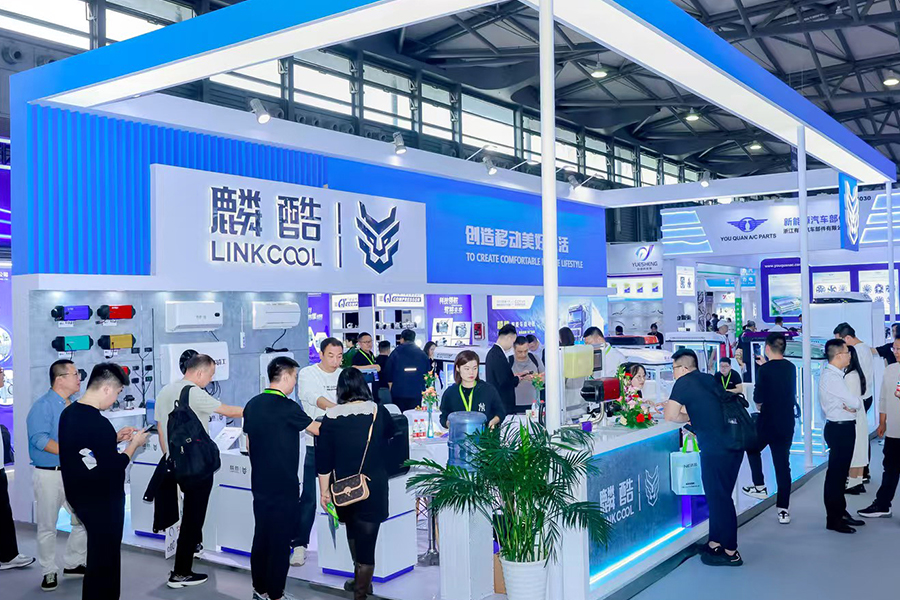
Zhejiang Linkcool Technology Co., Ltd. is China RV Air Conditioner Manufacturer and Sale RV Air Conditioner Factory. It focuses on the research, development, production and sales of automotive new energy appliances. Its main products include parking air conditioners, parking heaters and car water dispensers. As an integrated industrial and trade enterprise, we are committed to providing customers with high-quality, high-performance automotive appliances and outdoor camping appliances. We have more than 800 after-sales service outlets across the country.
Zhejiang Linkcool Technology Co., Ltd. covers an area of 20,000 square meters, providing employees with a spacious working environment. It currently has more than 150 employees and a professional R&D team and production team. We actively conduct technical exchanges and cooperation with industry experts and partners to jointly promote technological progress in the industry.
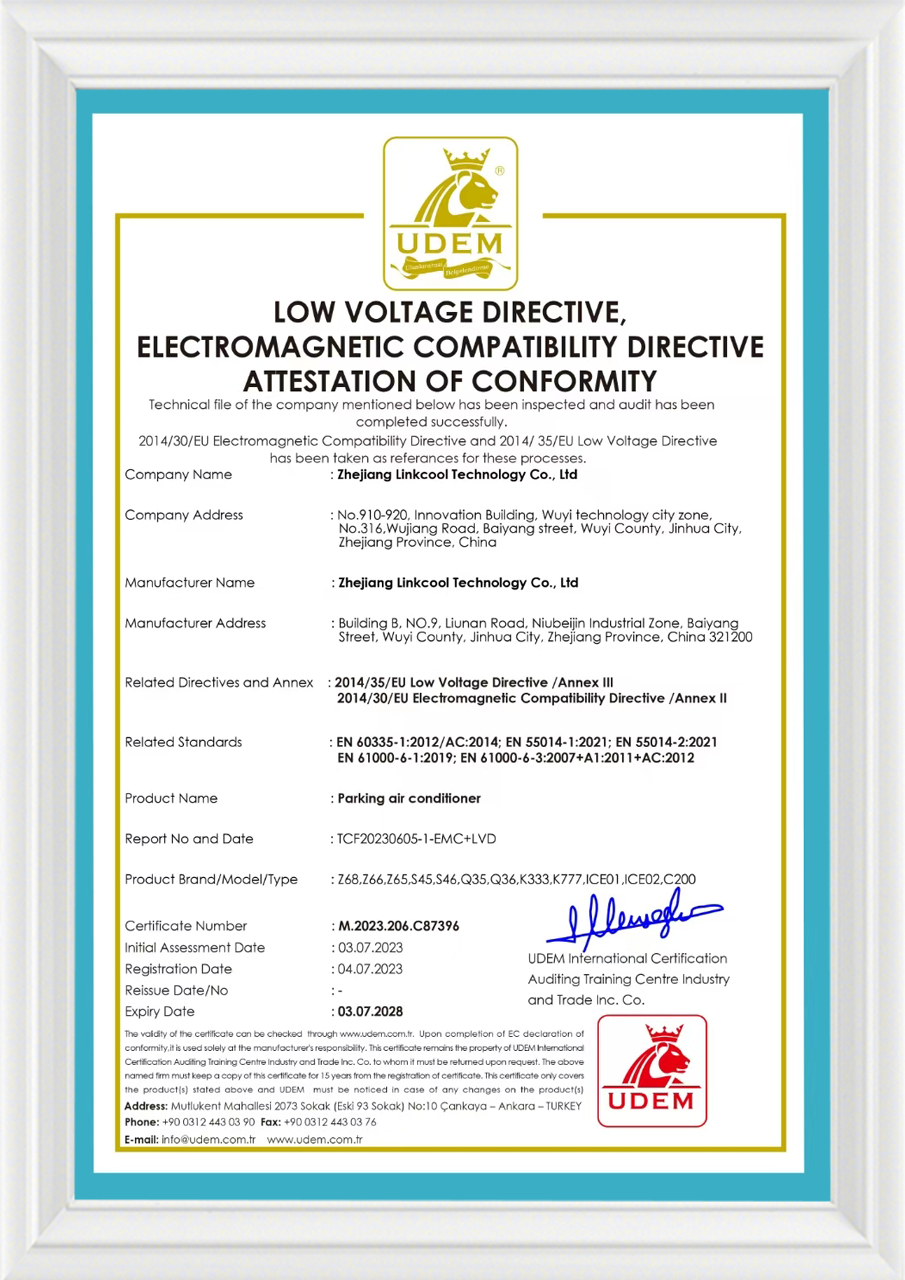
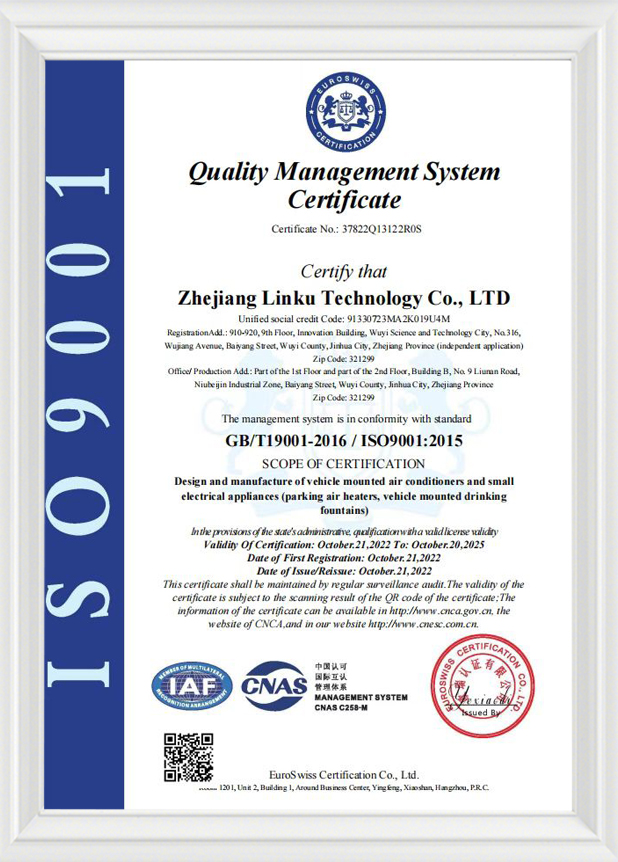

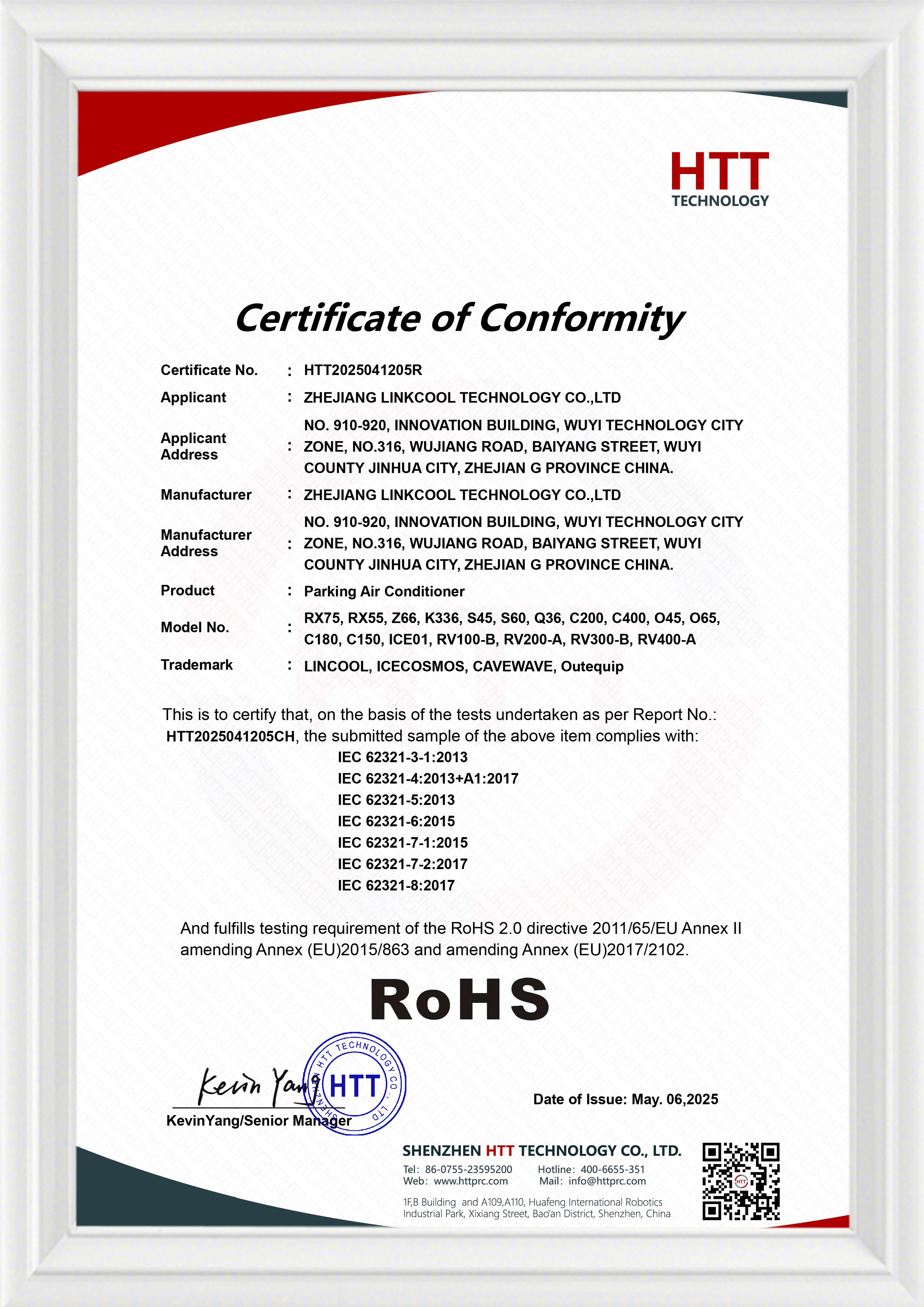
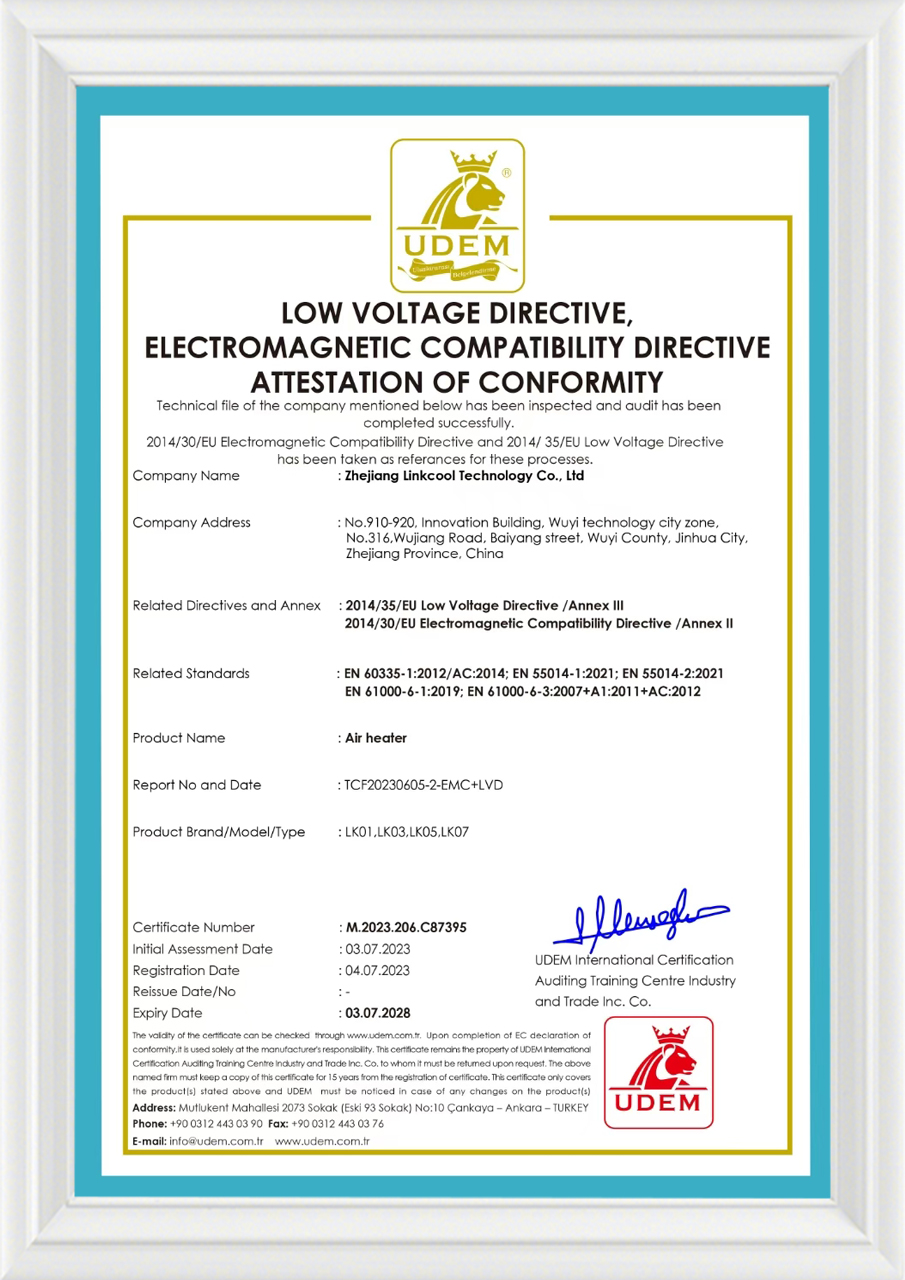
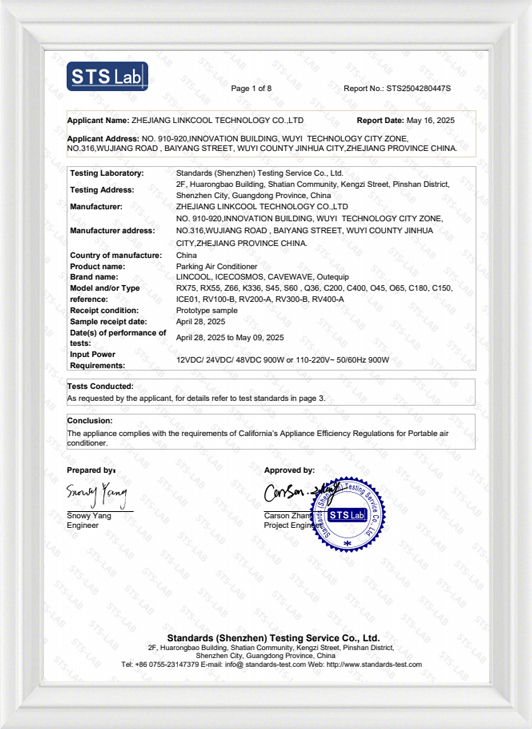
RV air conditioners have several notable shortcomings. One major limitation is their high power consumption. RV AC units typically...
View MoreIn recent years, 12V air conditioners have become increasingly popular for a variety of applications, from cooling vehicles and RV...
View MoreEnergy efficiency is a major concern, especially for vans used in remote areas or for long-distance travel. Van air conditioners c...
View MoreHow Does a Car Refrigerator Work? Car refrigerators operate based on the same principles as traditional home refrigerators but are...
View MoreIn recent years, RV air conditioners have evolved in several key ways. Traditionally, systems used fixed-speed compressors and had a limited range of settings. They tended to be noisy and drew a lot of power, making them challenging for off-grid users or those relying on solar setups.
Newer RV Air Conditioner models now feature inverter compressor technology, which allows the unit to adjust its output based on the cooling needs of the space. This not only improves energy efficiency but also reduces start-up power surges, making them easier to pair with generators, lithium batteries, and solar power systems.
Additionally, low-profile rooftop units are gaining popularity. These designs reduce wind resistance and allow for more clearance, particularly helpful for taller RVs and when traveling under bridges or low-hanging trees.
Noise reduction is another important improvement. Some modern RV Air Conditioner now offer quiet mode operations, lowering decibel levels significantly and improving sleep quality.
Smart controls and Bluetooth connectivity have also entered the scene, enabling remote operation through mobile apps—a convenience many tech-savvy travelers appreciate.
Together, these upgrades reflect a shift toward more flexible, efficient, and user-friendly air conditioning systems in the RV world.
Power consumption is a major factor to consider when choosing or operating an RV or camper air conditioner, especially for those relying on limited power sources like batteries or solar panels.
Many standard RV air conditioners range between 13,500 to 15,000 BTU, which typically draws 1,200 to 1,800 watts during operation, depending on the model and cooling demand. At startup, traditional fixed-speed compressors can spike to over 3,000 watts, requiring a strong inverter or generator to handle the load.
Inverter-type AC systems, which are becoming more common, use energy more efficiently. These Camper Air Conditioner avoid large start-up surges and operate within a lower wattage range once running—often closer to 800 to 1,500 watts. For those traveling off-grid, this makes a significant difference, as it allows air conditioning to run on smaller generators or even large battery banks, especially when supported by solar charging.
Thermoelectric and portable 12V AC units are available for smaller campers or van conversions. While they don't offer the same cooling power as rooftop models, they typically draw 200 to 600 watts, making them more suitable for short-term or supplemental use in limited spaces.
Power draw also depends on environmental conditions. Hotter climates require more sustained operation, increasing daily energy use. Good insulation, reflective window covers, and proper ventilation can all help reduce the load on your AC system.
Having an RV AC isn't just about cooling the space—it's about maintaining a livable, comfortable environment no matter where your travels take you. Whether you're camping in the desert, parked at a humid coastal site, or navigating a summer heat wave, AC systems play a crucial role in making RV life sustainable and enjoyable.
Modern RV AC are designed to cool quickly and maintain consistent indoor temperatures even when outside conditions are challenging. A well-sized and properly installed unit can lower the interior temperature by 15 to 20 degrees Fahrenheit, often within just 30 minutes.
Beyond just cooling the air, RV AC also help manage humidity, which is important for preventing mold, mildew, and condensation inside the vehicle. This is especially useful in areas with high moisture levels or when multiple people are occupying a small space for long periods.
For families, pets, or anyone with health concerns, reliable cooling is more than a luxury—it's a necessity. Many RVers also use their AC while parked overnight, during midday breaks, or when cooking inside to keep temperatures manageable.
The increased efficiency of modern systems means you don't have to be tied to campgrounds with full hookups. With a good solar setup and an energy-efficient AC, you can enjoy off-grid stays without sacrificing comfort.